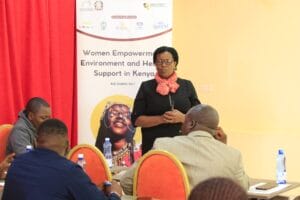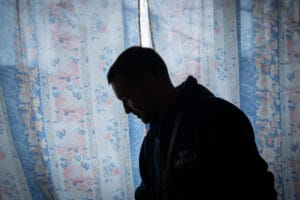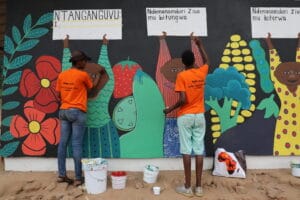
On March 8, in the semi-arid county of Narok, in southwestern Kenya, International Women's Day was celebrated with an initiative of great importance: the launch of a committee specialized in the management of gender justice cases. This goal is made possible thanks to the fundamental support of the Imarisha Mwanamke Afya na Rasilimali (IMARA) project, funded by the Italian Agency for Development Cooperation (AICS) and implemented by a consortium of international and national NGOs led by WeWorld.
Magistrate Phyllis Shinyada Lucia, who works with Narok County in managing gender issues, highlighted the increase in cases of gender-based violence in Narok County, affecting women, men, girls and boys, revealing that "In 2024 alone, Narok courts recorded 91 cases of sexual offences". She added: "As of March this year, we have already registered 10 cases of child abuse, with an average of three new cases per month, and these are just the reported incidents."
These data highlight the urgency of a specialized Committee, capable of monitoring cases and guaranteeing victims equal access to justice. The Committee brings together key actors in the justice system, including police, prison services, probation officers and prosecutors, with the aim of improving the coordination and effectiveness of responses to gender-based crimes.
The IMARA initiative played a key role in making this initiative possible. Working closely with the justice system and local communities, IMARA addresses the root causes of violence, promoting lasting cultural and institutional change.
Speaking about the challenges that the Committee will face, Magistrate Lucia mainly highlighted financial difficulties, as well as cultural obstacles: "In Narok County, harmful practices such as female genital mutilation and child marriage still exist, which are a brake on change," she explained. However, she said she was confident that these obstacles would not significantly slow down the progress of the Committee and the fight against gender injustice.
One of the Committee's main objectives will be to reduce the backlog of cases. "The accumulation of pending trials is due to several factors, including the unwillingness of witnesses to appear in court and the pressures or interference they suffer, especially in cases related to cultural practices such as female genital mutilation and early marriages," explained Magistrate Lucia. To address this issue, one of the Committee's main tasks will be to work with civil society organisations to identify and support witnesses who have difficulty attending hearings.
"Obtaining justice means, first of all, guaranteeing victims fair and effective access to the justice system," said the Magistrate.
After the launch of the EnCYCLEpedia ("The things you should know about menstrual justice"), published by WeWorld, and the fifth edition of the Mara Girl Summit, held on 28 and 29 November 2024, both supported by WeWorld in collaboration with AICS as part of the IMARA Project, this launch represents a further step in the efforts of the Italian Cooperation together with Narok County in the fight against gender-based violence.
This article was written by Sheila Sirali, Communication Officer at WeWorld



